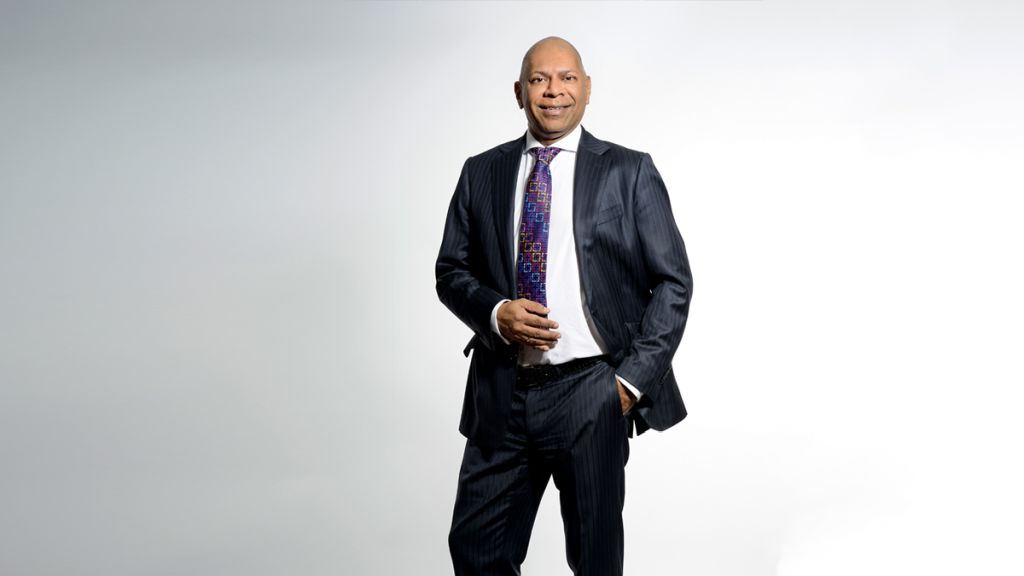"Most people don’t want a future, they just want their life today to carry on slowly and unchanged for the next 30 years without anything new happening. But I have bad news for everybody who thinks like that: the next 50 years we are going to experience much more change than in the past 5.000 years."
Futurologist Adjiedj Bakas talks with passion and enthusiasm as he describes the brave new world of tomorrow. He is the author of the brand new book The New Renaissance. Dutch prime minister Mark Rutte hails him as one of the great thinkers of our time and age. Bakas (55) with roots in India, South America and Europe, lives and works in the metropolitan area of Amsterdam and already sold 1 million books worldwide. He might come to Bucharest soon to speak to business people about the opportunities for the future. We had an interview with him in his fairy-tale like villa.
Q: How would you define the era of slowbalization? What are the tools for business to navigate the era of Slowbalization?
Adjiedj Bakas: Globalisation is slowing down. New nationalism, regionalism and patriotism is on the rise. People become aware of the fact that ruthless globalization is not beneficial to them. Only a small group profits. So, the concept of unbridled globalization is cooling down now. Besides, due to the digital transformation, artificial intelligence and robotization it becomes possible to manufacture cheaply locally.
Q: As the term you coined‚’’slowbalisation’’, decribes ‘’the reaction against globalization’’ how severe will it become? What might exacerbate it? What will global commerce look like in the aftermath?
Adjiedj Bakas: One of the defaults of globalization is the open border policy within the EU. Due to this the main export product of countries in the East and South is their youngsters. Italy, Portugal, Romania are exporting their promising youngsters to Germany and Scandinavia. Ageing, already a severe problem here, therefore becomes even more severe. It is therefore of utmost importance that Romania tries to lure the migrated youths back. And that Romania starts a baby boom, as is already happening in Hungary, Russia and Scandinavia. Immigration is no real solution, you can not build a future upon other people’s babies. Yet, in northwestern Europe where islamization has happened and where Islamic terrorism is on the rise, many indigenous Europeans are moving to safer, Muslim-free areas. For example many people from Sweden, France and the Netherlands are buying property now in Portugal and Hungary, and they move their assets and pension funds to these countries. Romania can benefit from this trend and could welcome them. The winner of the current cold war between the Christian and Islamic worlds is China. The new silk roads, also known as the Belt & Road Initiative, is connecting Eurasia into a huge economic powerhouse, led by China. Romania should connect itself to the new silk roads, without making the mistakes of for example Montenegro, which made too many debts in order to connect itself to the new silk roads.
Q: Who will be the winners of slowbalization? How will the looser look and end up?
Adjiedj Bakas: China is the winner. The Muslimfree regions in Europe and Africa might benefit as well. Countries as Sweden, France and the UK might lose.
Q: Might the reaction against globalization end in an unipolarity super power?
Adjiedj Bakas: China, Russia and the USA will be the main powers in the multipolar world, led by the Chinese.
Q: What are the chances of smaller economies, like Romania, in the era of slowbalization? Is the European Union ready to deal with slowbalization?
Adjiedj Bakas: Europe is fast becoming one big open air Disneyland for tourists from all over the world. Romania’s tourist industry could benefit tremendously from this trend. Meanwhile the world’s population is growing with a net amount of 220.000 people daily. So the food and agriculture industries here could produce and export a lot. Meanwhile de global IT-industry is growing fast. Romanians are good in IT and the Romanian IT-industry can expect a booming future.
Q: What’s the fate of the Euro and the Dollar in the era of Slowbalization? What about the banks, insurance companies and, in general, of the financial industry?
Adjiedj Bakas: Central banks all over the world are ruining the current financial and monetary system by printing more and more new money daily. In Israel a new crypto currency, the Carat, is created, based on the value of the diamonds in the Israeli Diamond Exchange. In Finland entrepreneurs are experimenting with a new crypto currency, based upon the gold that they bought in South America which is stored in Finnish vaults now.


































